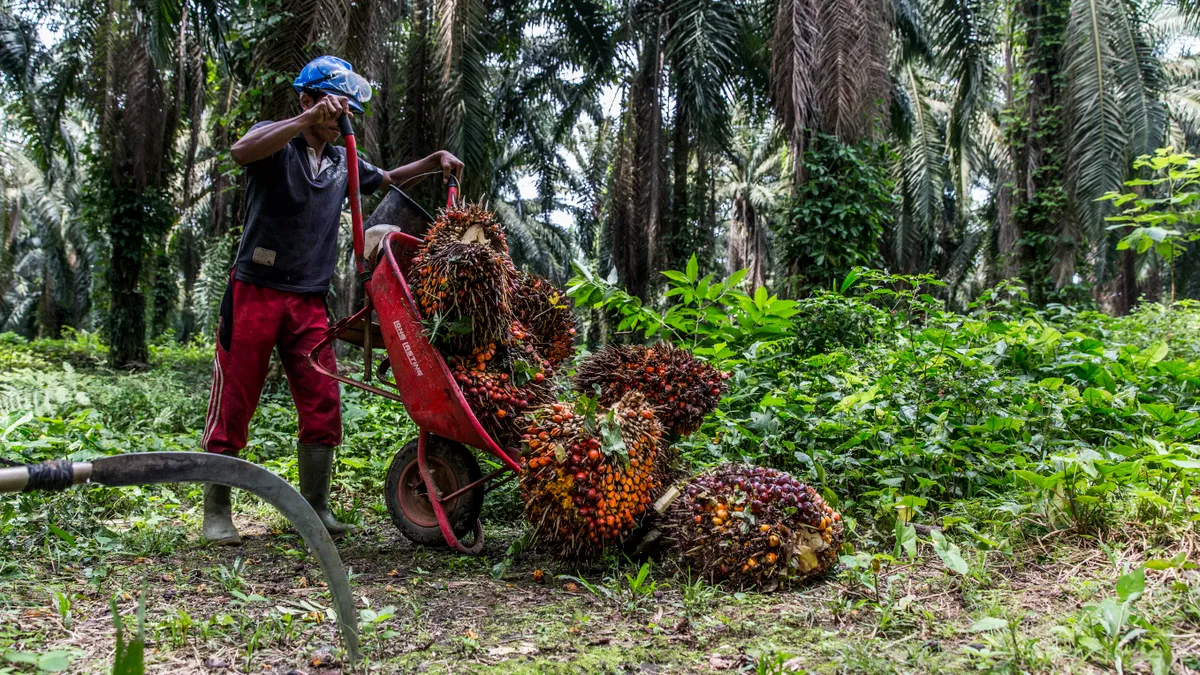Dive Brief:
- A glut of supply in the palm oil supply chain is leading plantations to delay harvest and mills to stall on deliveries as storage tanks are full, Reuters reported citing industry sources.
- Stocks of palm oil supply in Malaysia reached 3 million tons last month, the highest level in 18 years, according to Reuters. Demand for palm oil has been slower this year, creating stockpiles and driving prices to multi-year lows.
- A reduction in government tariffs, as well as some extended holiday shutdowns, allowed inventories to be drawn down a bit, easing the capacity crunch.
Dive Insight:
Supply chain managers with palm oil in their supply chains need to be aware of the economic and environmental issues surrounding this universal commodity.
In the short term, the current glut of palm oil has driven prices to a three-year low while allowing easy access to inventory. However, long-term environmental and sustainability issues at the producer level should keep this commodity on the supply chain risk radar. Palm oil plantations are linked to deforestation and related climate issues, impacts on local populations and endangered species like tigers and elephants.
According to the World Wildlife Fund, palm oil is the most common of vegetable oils, used in about half of the packaged products sold in supermarkets, such as cookies, ice cream, margarine, noodles and packaged bread. It is also used in non-food products like biodiesel, detergent and shampoo.
The widespread use of palm oil is expected to increase, potentially putting pressure on growers and producers to meet demand. The agricultural and logistics issues around the current harvest demonstrate the issues around processing and capacity.
This ubiquitous commodity offers a lesson to supply chain managers. While some may consider it a simple and easy to obtain ingredient, the palm oil market is a complex one. Supply chain managers would do well not to treat commodity items as afterthoughts, often purchased from the lowest cost provider with very little thought — better not to wait for when these commodities become problems, due to supply or cost, to finally pay attention to their unique attributes.













